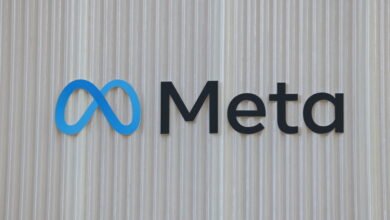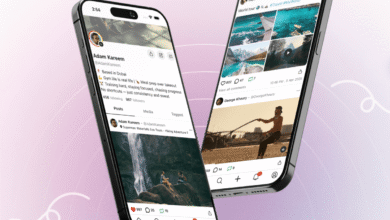Captions Rebrands as Mirage, Pivots to AI Video Research

▼ Summary
– Captions, an AI video app for creators, is rebranding to Mirage and shifting focus to become an AI research lab for short-form video content.
– The company aims to differentiate itself by developing multimodal foundational models specifically for platforms like TikTok, Reels, and Shorts.
– Mirage Studio, its tool for brands, generates complete video ads from audio files using AI avatars and backgrounds without stock footage or lip-syncing.
– The technology raises concerns about impacts on creative jobs and the spread of deepfakes, which the company addresses through moderation and promoting media literacy.
– Mirage Studio is offered in a business plan costing $399 monthly for 8,000 credits, with a 50% discount for new users’ first month.
The video creation platform formerly known as Captions has officially rebranded as Mirage, signaling a strategic shift toward advanced AI research focused on short-form video. This move comes as the company, backed by over $100 million in venture funding and valued at half a billion dollars, aims to pioneer multimodal foundational models tailored for platforms like TikTok, Instagram Reels, and YouTube Shorts.
Under its new identity, Mirage will consolidate its offerings, merging the original creator-focused Captions app with the recently introduced Mirage Studio, a tool designed for brands and advertisers. According to CEO Gaurav Misra, the rebrand reflects the company’s ambition to lead in what it sees as an emerging frontier, AI-generated video. Rather than competing directly with existing solutions, Mirage intends to redefine the category through specialized research and innovation.
Mirage Studio, which launched earlier this summer, allows businesses to produce short video ads without actors, cameras, or large production budgets. Users simply provide an audio track, and the platform generates a complete video featuring custom AI avatars and digitally created backgrounds. A unique selling point is the platform’s ability to produce avatars with remarkably natural speech, gestures, and facial expressions, all without relying on stock footage, voice cloning, or conventional lip-syncing techniques.
Available through a business plan priced at $399 per month for 8,000 credits, Mirage Studio also offers a 50% discount for new users in their first month. This pricing model aims to make AI video production accessible to a wider range of businesses looking to cut costs and accelerate content creation.
However, the rise of AI-generated video is not without controversy. As brands increasingly turn to tools like Mirage Studio, concerns are growing about the potential displacement of creative professionals and the ethical implications of synthetic media. Recent examples, such as an AI-generated model featured in a Guess advertisement in Vogue, have sparked public debate and pushback.
There are also broader societal worries about the spread of misinformation. As AI video technology improves, the line between real footage and deepfakes becomes increasingly blurred, raising questions about authenticity and trust in digital content.
In response, Mirage has acknowledged these challenges in a public statement, emphasizing its commitment to preventing misuse through moderation tools that require consent for likeness use and prohibit impersonation. Still, the company admits that technical safeguards alone are insufficient. It advocates for a new form of media literacy, encouraging viewers to approach video content with the same skepticism they might apply to online news.
The evolution from Captions to Mirage marks more than a name change, it represents a deeper investment in the possibilities and responsibilities that come with generative AI. As the company pushes into uncharted territory, it will need to balance innovation with integrity, ensuring that its tools empower creativity without undermining trust.
(Source: TechCrunch)





